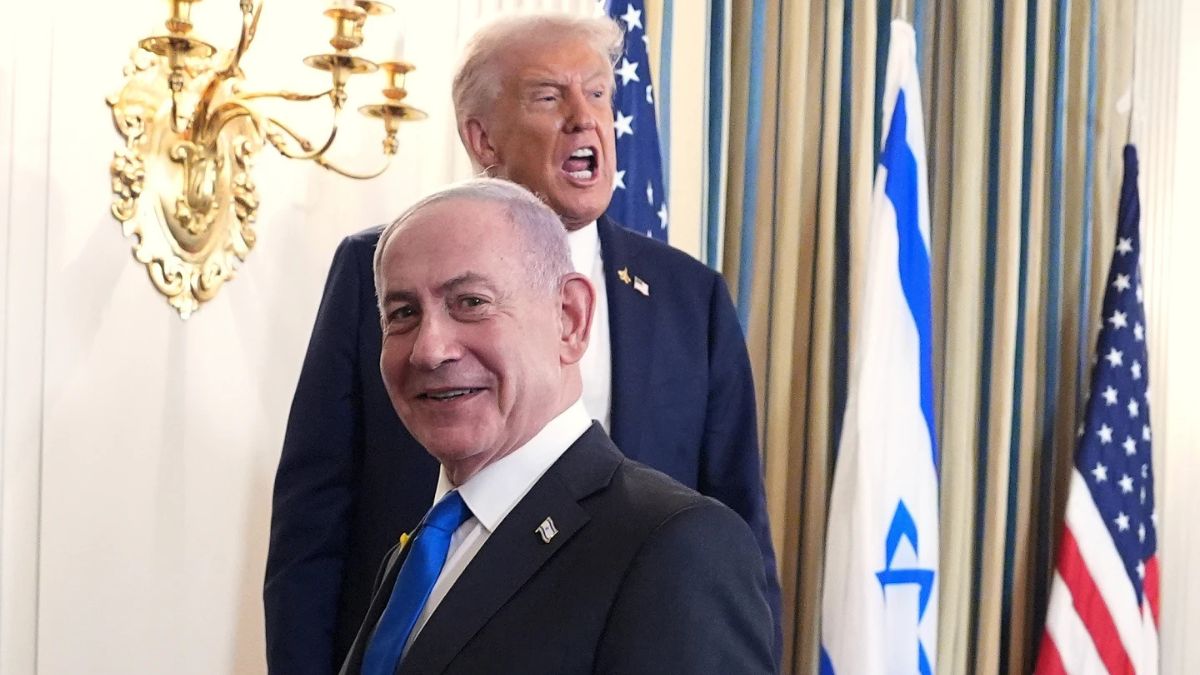Diplomatic efforts to end the Gaza war have intensified as indirect negotiations began Monday in Sharm El Sheikh, Egypt, based on a 20-point peace plan proposed by US President Donald Trump. The plan aims to end hostilities, secure the release of the remaining 48 Israeli hostages, facilitate a phased Israeli withdrawal from certain areas of Gaza, disarm Hamas, and establish a technocratic Palestinian authority to govern the region.
Trump Pressures Israel and Hamas
Trump has taken an assertive role in the negotiations, urging both sides to act quickly to prevent further bloodshed. He described the process as “very successful” and pushed for the first phase to be completed within the week.
Tensions have arisen, particularly with Israeli Prime Minister Benjamin Netanyahu, who reportedly dismissed parts of the peace proposal as meaningless. Axios reported a heated exchange in which Trump told Netanyahu he was “always so negative.” Trump has also urged Israel to halt bombing operations during negotiations.
At the same time, Trump has pressured Hamas, warning that refusal to disarm and relinquish power could result in total destruction of the group.
Negotiations in Egypt
Preparations for indirect talks in Egypt were completed Sunday evening. A senior Hamas delegation, led by Khalil Al Hayya, arrived in Sharm El Sheikh, while an Israeli delegation under Ron Dermer is set to join today. US negotiators, including special envoy Steve Witkoff and Jared Kushner, are supporting the discussions.
Israeli Foreign Minister Gideon Saar expressed cautious optimism, saying Israel is closer than ever to a hostage deal since January. US Secretary of State Marco Rubio emphasized that a temporary ceasefire is essential for logistical preparations, including Red Cross access to hostages.
Humanitarian Crisis Escalates
Despite calls for a halt in fighting, Israeli airstrikes and tank fire continued over the weekend, hitting Gaza City, Rafah, and surrounding areas. At least 24 Palestinians were killed on Sunday, including four near an aid distribution center, which the Israeli military has denied targeting.
Gaza’s Health Ministry reports that the conflict has claimed 67,139 Palestinian lives and injured nearly 170,000. Displaced families are struggling for food and shelter in overcrowded tent camps and community kitchens.
Deep Divisions Remain
Long-term peace faces significant obstacles. Israel insists on Hamas’ removal and disarmament, while Hamas shows only limited willingness to participate in a technocratic transitional governance model and has resisted full disarmament or withdrawal from future influence.
Domestic Israeli politics further complicate negotiations. Hard-line ministers in Netanyahu’s coalition have threatened to destabilize the government if Hamas is not completely neutralized. Defense Minister Israel Katz has stated Israel will retain control over key areas of Gaza necessary for security, even after any ceasefire.
Hamas’ public statements continue to avoid commitments to disarmament, leaving critical issues unresolved as negotiations proceed.



0 Comments